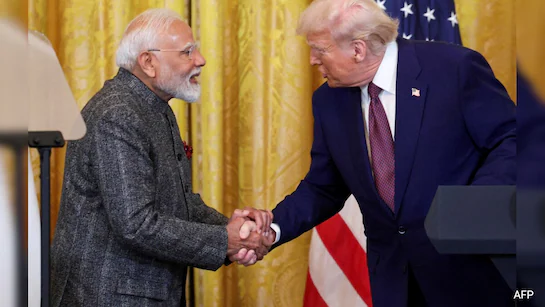Lagatar24 Desk
New Delhi: Government sources have confirmed that efforts are actively underway to address the ongoing tariff discord with the United States, following Washington’s imposition of an additional 25% penalty tariff on Indian goods over Russian oil purchases. Officials stressed that the current friction is a “temporary phase” in an otherwise long-term and strategic partnership between the two nations.
Impact Of Tariffs On Indian Exports
With the latest hike, total tariffs on Indian goods exported to the US have surged to as high as 50%, placing India alongside Brazil at the top of the tariff net. Nearly two-thirds of India’s annual $60 billion exports to the US now fall under higher duties. Despite this, New Delhi has reassured exporters that the impact is not expected to be severe due to India’s diversified export base.
US Perspective On Trade Relations
US Treasury Secretary Scott Bessent, in interviews to Fox News and Fox Business, noted that while the situation is “complicated,” the personal rapport between US President Donald Trump and Prime Minister Narendra Modi remains strong. He reiterated Washington’s concern over its trade deficit with India, remarking that in any trade schism, “the deficit country is at an advantage, the surplus country should worry.”
India’s Firm Stand And Political Reactions
Back home, Prime Minister Modi has underlined that India “will never compromise” on protecting the interests of its farmers or national priorities. Reports from German daily FAZ suggest that Modi even refused to take four recent calls from President Trump, reflecting both the depth of his frustration and his cautious approach to the dispute.
Long-Term View On India-US Partnership
Despite heightened rhetoric and temporary disruptions, both sides acknowledge the depth of bilateral relations. Experts believe that India’s stance on continuing Russian oil imports, coupled with Washington’s tariff pressure, will remain a sticking point. However, given the economic and strategic weight of both democracies, resolution is expected through ongoing dialogue rather than prolonged escalation.







